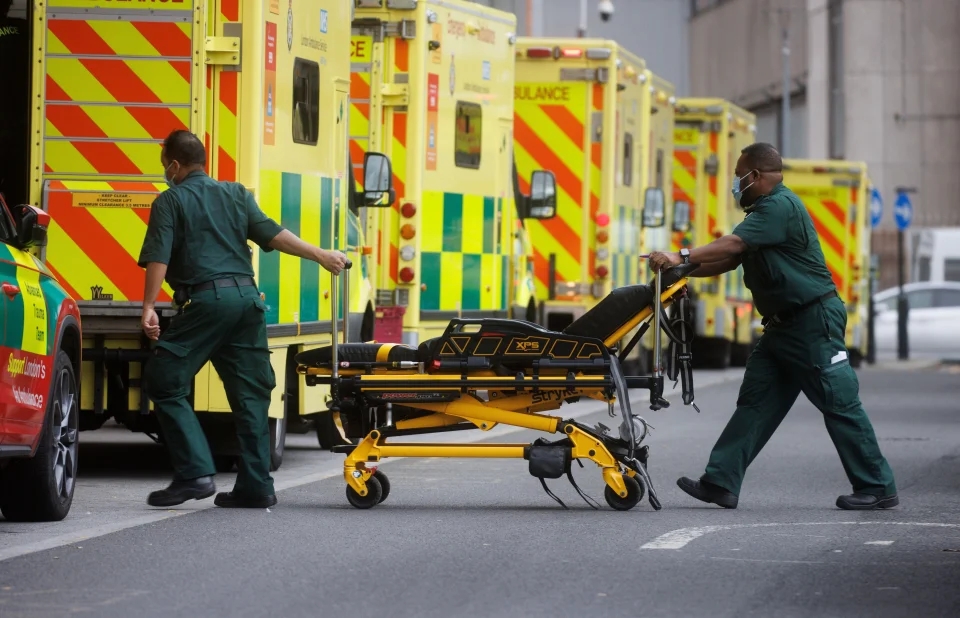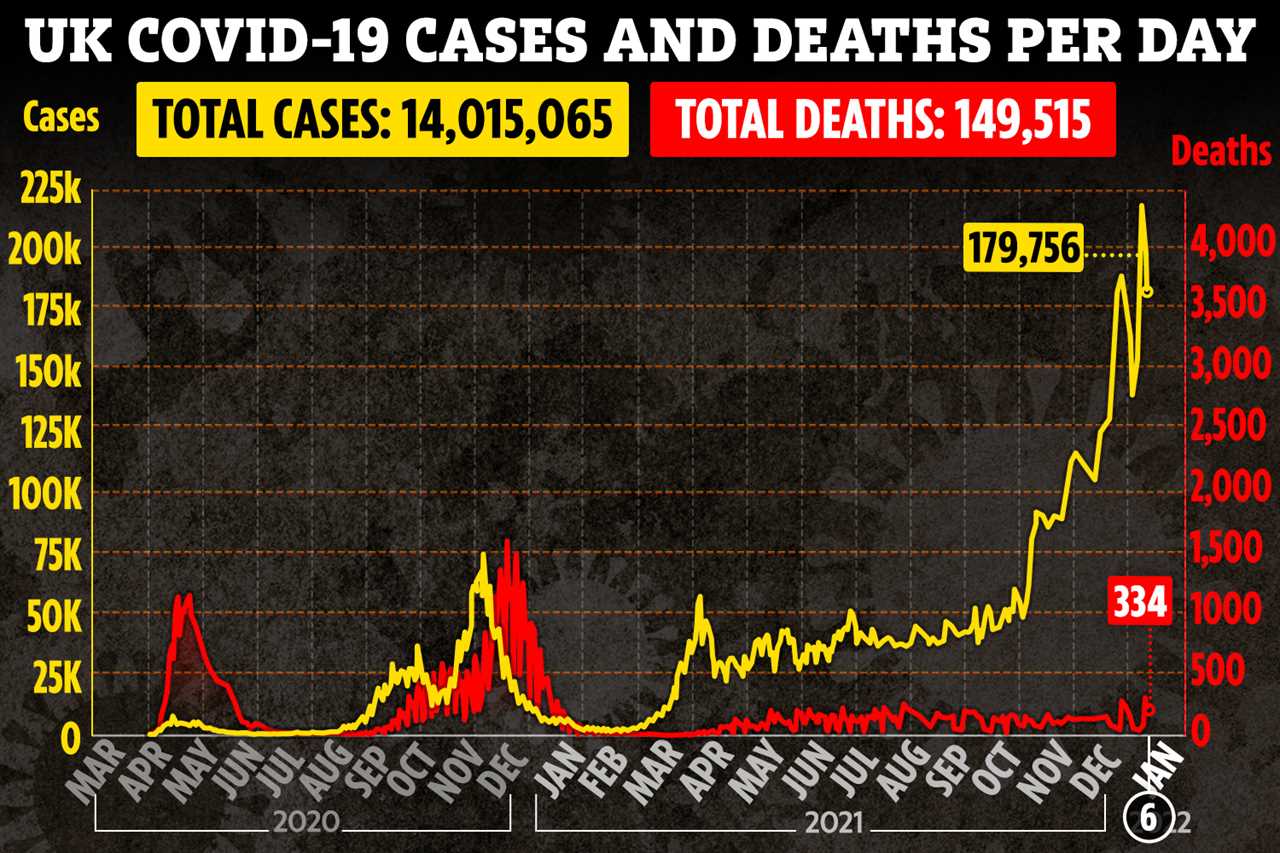HOSPITAL stays for vulnerable Covid patients are getting shorter in a major boost to the NHS amid an isolation-induced struggle, new data suggests.
In all age categories, data shows people with coronavirus are spending fewer days on a ward thanks to the UK’s successful vaccine rollout and the mildness of the prevalent Omciron variant.


It comes as good new for the NHS, which has been struggling with staff shortages as calls for the isolation period to be slashed from seven to five days grow.
A string of hugely positive studies show Omicron IS milder than other strains, with the first official UK report revealing the risk of hospitalisation is 50 to 70 per cent lower than with Delta.
Covid booster jabs protect against Omicron and offer the best chance to get through the pandemic, health officials have repeatedly said.
Trending In The News’s Jabs Army campaign is helping get the vital extra vaccines in Brits’ arms to ward off the need for any new restrictions.
During the third wave of Covid last May, those aged over 80 were usually spending 11 days in hospital – but since December they have typically been discharged after just five days, figures show.
And those aged between 50 and 79 were generally hospitalised for up to eight days, but this is now down to five days according to new data.
Those under 50 are now on average requiring a hospital bed for just three days – down for four during the third wave.
Government advisors say this reduces the risk of hospitals being overwhelmed and halving the duration of hospital stays effectively doubles capacity of beds.

Follow our Covid live blog for all the latest updates
The positive figures come after it was reported a total of 24 hospital trusts on Wednesday declared critical incidents as pressure mounts on Boris Johnson to slash the length of Covid isolation.
With the mild Omicron variant spreading, the seven-day isolation period is causing a staff shortage at hospitals – amid demands for it to be cut to five days.
Data shows 90 per cent of Covid patients in ICU still haven’t had their life-saving booster jab, despite the shots protecting against Omicron and offering the best chance to get through the pandemic, health officials have repeatedly said.
The current NHS worker shortage has sparked renewed calls to slash isolation for people who test positive for the virus from seven to five days to get healthy and much-needed healthcare staff back to work.
Currently, confirmed cases are forced to stay at home for at least a week, down from 10 days before Christmas.
Tory MPs are among a legion of voices demanding the quarantine period be cut after soldiers were put on standby to plug the absence of critical workers.
But it is now hoped Britain may follow the US and slash isolation requirements to five days to keep the nation moving.
On Thursday, the UK’s daily Covid cases fell for the second day in a row as 179,756 new infections were logged.
While the figures are still high the drop is a promising sign – especially after record numbers of over 200,000 earlier in the week.






